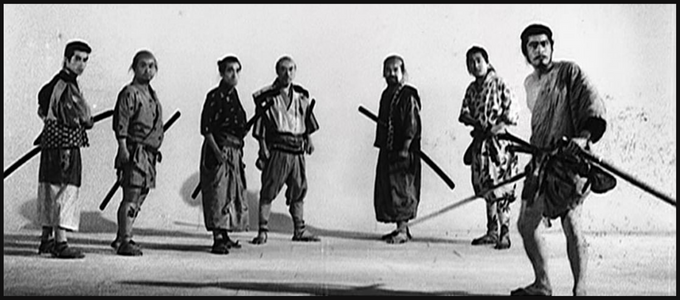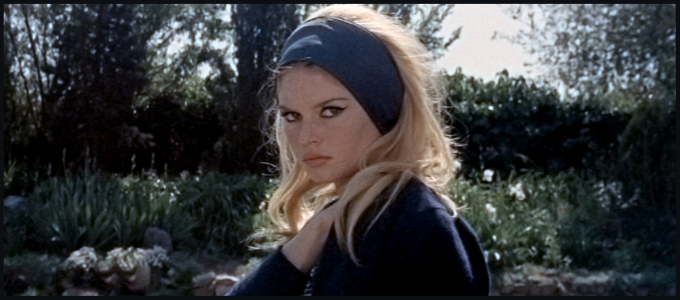Today I want to discuss a life-changing concept that many men today want, and, I believe, every man needs. Understanding the power of male friendship as a vehicle for growth.
And I don’t mean growth in just some mastermind-group, hustle-for-excellence way… nor in some men-in-the-woods circle of emotional processing. I’m talking about a vehicle for growth in how we relate in our leadership and in our humanity, and become more vital and authentic in the process.
Across every continent in this world, I’ve seen a secret dismay among men. Most of our male friendships fumble about in circles, constrain our true selves, and, all too often, take us backwards.
And yet, as I posted in a video a couple of weeks back, one of the fiercest, most fast-moving and impactful sources of transformation is found in our long-term friendships with other men. Brothers. But we have to transform the nature of these associations out of friendships of convenience, into ‘friendships of virtue’.
* * *
Healing the Wild Cat
.
Now at the beginning of all this, I had no idea how to be a brother. I was an only child, arrogant at school, but kinda brushed aside by kids with a keener physicality. I always had male friends, but I had a selfish streak, and we only became more competitive, more undermining of each other, in the whole school bullying culture we were part of. Girls made more sense than other boys, and provided a welcome respite.
I was never a loner from other men. But a wild cat, certainly. Not really allowing myself to be touched. The focus on women in my early Amorati years extenuated this more: as I evolved in a sort of erotic personal power, men became mere obstacles, time-fillers, until I could get my hands on a good woman.
For a while, the only men that existed to me were those who could teach me about women.
One Christmas in Zanzibar, I had met and approached a beautiful Italian girl, and spent four days (and you could not imagine how proud I was) driving her around the island on my motorbike. For two days I felt we were on an upswing. The next two days, any chance of passion fizzled away. Kristoffer, my travel companion, watched the whole thing from the balcony. ‘If you like,’ he proposed, ‘I’ll tell you every single way you messed this up.’
I took a deep breath and settled myself in the chair—it was the most excruciating conversation of my life. But by its end, a palpable feeling had opened up between us. Gratitude. A recognition of mutual courage. As much as I was impressed at the sharpness and the truth of his feedback, he was impressed at how openly I took it. Within days, both of us moved onward, towards far greater things.
A year later, I rolled into San Francisco in this rust-bucket of a Jeep we’d driven in from Massachusetts. There were four of us brothers—or, should I say, slightly-wary-of-each-other wild cats—that had traveled through all conditions together, for more than two months. Between the cracks of the good times we shared, resentments simmered beneath. One day, through a mutual contact, we were introduced to radical honesty, and to circling. At the end of a long afternoon of rapt listening and holding space for each other, I broke down into an expression of my deepest shame, sharing secrets about my upbringing I’d never told a soul. The absence of a father, and all the pain related to that. Things I’d later realise actually connect most of us here.
As it turned out, this brotherhood experience was the most healing experience of my life. It was my first ‘great breakthrough’, where I let down my social shells, and let my friends actually come close.
The air felt different after that process, like the gentle aftertaste of a wild trip. Women, surprisingly, came closer to me, too. Interestingly, everywhere I went since that intense afternoon, men started nodding to me as I walked down the street. I’d never felt properly included by men before.
And this was just the beginning…
* * *
‘Friendships of Virtue’ — Definitions
.
In a beautiful story, Peter Limberg highlights two dimensions that are necessary for male ‘friends of virtue’ to have a transformative effect on each other. This is what I discovered along the path, but didn’t have such language for.
First, masculine excellence:
‘Spiritual brothers, or “brothers from another mother,” are by choice, not birth. To use Aristotelian languaging, the reasons for the camaraderie are beyond pleasure or utility. The brotherly calling is to strengthen each other’s virtue. The highest love you can give your brother is being competent in their presence and encouraging them to be competent in yours. The virtuous become competent in life together.
… When in battle, you want your brother to be competent when they protect your back, and you want to be competent when you protect theirs. There is beauty when men work together towards a common goal, sharpening each other in progress and growing together in muscle, mind, and spirit. My spiritual brothers implore me to stay focused on what is most heavenly.’
And second, what was a revelation for the author here—and what I never knew was a thing—masculine compassion:
‘Generally speaking, men are bad at holding space. They hardly ask personal questions, forget birthdays, and turn conversations towards the abstract, problematizing something so they can solve it. This never bothered me before, but it does now. I am ready to receive masculine warmth.
… Masculine competence should not only be about becoming more agentic, but also apply to healing. A spiritual brother has a masculine warmth, a love that stretches beyond the feminine; he fights alongside his healthy brothers and holds space for his wounded ones. My male peers are wounded, with spirits reeling from generation after generation of war, spilling blood, and survival-wrought brutality. Us men can no longer look away from our deep wounds. It is time for us to heal, and wise for us to heal together.’
* * *
13 Principles for Transformative Brotherhood
.
What follows is not a well thought-out system (yet). Rather a quickly-set table of important traits. The question looms: how do I become a quality friend, when I was a wild-cat at school, received a vague inheritance of fatherly virtues, and my gifts to others are partially-formed at best?
Can I make it to the party? Can I find a sense of warrior—or king—inside me, too? Can I even build these friendships to be sustainable?
Well, friendship and virtue are all in the presence you hold. But the mere practice of being a more virtuous friend, no matter how stilted and sloppy you are at the beginning, is what will make you a more virtuous friend.
Principles:
1. Ask if your friend is open to your feedback. Don’t shine your light where it’s not invited.
2. Inner work can be heavy, and some men, after getting the green light that they’re allowed to be emotional, can become defensive, dry or melodramatic. Make your honesty sessions playful (develop the Art of Affectionate Teasing).
3. Give a dose of praise for every cut of the blade (feedback sandwich, lol).
4. Note the positive intention you brother holds deep down, even when he engages in non-helpful behaviour. Practice walking in his shoes.
5. Remember that men can be analytical monsters, and there is a slice of life that your consciousness understands better than anyone else. Don’t shy away from giving your best, most discerning feedback. While remembering that every man you’re with has, somewhere, an extraordinary perspective and gift.
6. Consistently attempt to step out of your own dogma. I think all of us men fall into this simplistic trap at times, where we forget that our way, our path, our belief system, is not necessarily what is needed for our friend. Try your best not to reduce everyone around you to your own prescriptions. Even if you just discovered the hammer, there’s still a broad range of tools.
7. After your honest feedback lands, hold impeccable space. That means listening, if nothing else, without judgment.
If your virtuous conversation and your feedback illuminates a blind-spot for him, it is normal that he’ll enter a process of emotions. The real-world feedback might be demanding for him to take in. It might shatter a self-image, access an old wound, and cause him to break open or break down. If you can purely witness this, it might be the most healing experience of his life.
On the other hand, after your honest feedback lands, he might get defensive or argue back. This is also normal. Continue to hold space without forcing your perspective upon him. But you might reflect back that, ‘wow, after hearing that, it seems you got defensive or argumentative with me.’
Trying to force men to change through your feedback is… exactly a form of masculinity that now belongs to the past.
8. Trust your gut. When men get together to get raw and honest, the conversation can slide in one of two directions. One is a soppy, emotionally leaky kind of circle process, hiding amidst brotherhood as a blanket from the trials of the world. The other is a sort of tough-talking, action-taking fascism, where the wounds of hyper-competitiveness hi-jack the ship. Conversations get like this because they reflect our patterns. You can always call others to more excellence, or compassion, should your gut start twinging about the direction of things.
9. Aspirational self. Keep seeing, and reminding, your friends of virtue of their most aspirational selves. Call this forth when they forget. Don’t get lost in critiquing, or over-feeling, the current manifestation of the man before you.
10. Offer challenges that are relevant to the friend before you. Give him challenges that are not easy, but that he has an outside chance to win. Never give a challenge you’re unprepared to take on yourself. The masculine grows through challenge.
11. If a conversation with a brother feels like it’s dwindling, take responsibility for calling forth the level of truth, aliveness and depth that you want. Complaining about the quality of our friends is about as anti-virtuous as it gets. You can do this simply by stating, ‘hey, tell me the essence of what you’re saying here,’ or ‘what’s really your truth when you talk about that.’
12. Seek repentance. We all trip up and become bad friends along the way. With sincerity, take account of any upset you cause, and ask how you can make amends.
13. The more you continue on your path, and engage whole-heartedly in your own true life, the more you’ll become a virtuous friend. Become masterful in your skills of perception, and you can become a transformational friend. Here’s a piece on becoming an ‘Amorati mentor’ in your everyday life.
* * *
‘Contain’ Your Best Male Friendships (A Vision for Amorati)
.
What Ars Amorata does better than anyone is that we bring together men with a sincere heart, an optimistic picture of women, and the desire to know. We are travelers, storytellers, artists at heart—even if you’re an engineer in the mind.
From within the community, it is up to you to cultivate your friends of virtue.
Every Essentials or Advanced group call, every monthly Q&A or members’ Studio session, is a congregation. Inside, you’ll catch glimpses of men you vibe with. You’ll be connected together under one philosophy; a shared intention to grow in virtue. If you want more guidelines for structuring a productive group call—and the free-floating principles listed above remain a little too vague—then reach out. We have around five-hundred gentlemen from around the world, many of whom will be happy to help you out.
Now, I get what you’re thinking…
… it’s weird enough to celebrate a woman and tell her you want to go deeper with her. How the hell do I do that with a brother?! Haha, no-one said transformation, and building friendships of virtue, would be easy. But it could be one of the greatest things you’ve ever done.
Simply call it out: ‘hey, I’m looking for some friends of virtue. I like the way you show up. Let’s have a chat and see if we’re going in the same direction.’ Easy. You can even add, ‘these are some of my values for friendships with men, are you game to play at this level?’
This is, of course, easy… when you’ve been through the same rite-of-passage experience together.
* * *
Sometimes we have to overcome some deep conditioning to reach out, and speak to the world what we want and what we like. What I suggest might be beyond the rubicon for some men, but do it, you must.
Because, hey, are you going to pin all your social needs on succeeding with women, when you could take 80% of the pressure off yourself first with good brothers?
Are you going to continue to tolerate those circular conversations about sports and celebrities and outrage, pissing away your finest hours in some dour pub?
The antidote to all social malaise, I’ve come to discover, is in building long-lasting friendships of virtue.
~ Jordan
* * *
Whenever you’re ready — here are three different ways to cultivate virtue.
See the difficult truths about yourself, and receive life-changing feedback in a compassionate way:
No holds barred: we’ll get to the depth of what you’re rubbing up against, in the most playful and compassionate way alive.
You’re only as insightful to your friends as your perception is clear. Daily embodiment, the LOTM way, cleanses your mind and senses. As you gain in self-knowledge, your ability to be a friend deepens, too.
If you want to meet like-minded men, and potentially build friendships of virtue for the rest of your life, take Essentials and join the Amorati.
What more can I say? So many of us have lived together, broken bread together, fought over women together, and lived a full-out adventure… for years.
Join the Essentials waitlist today.






